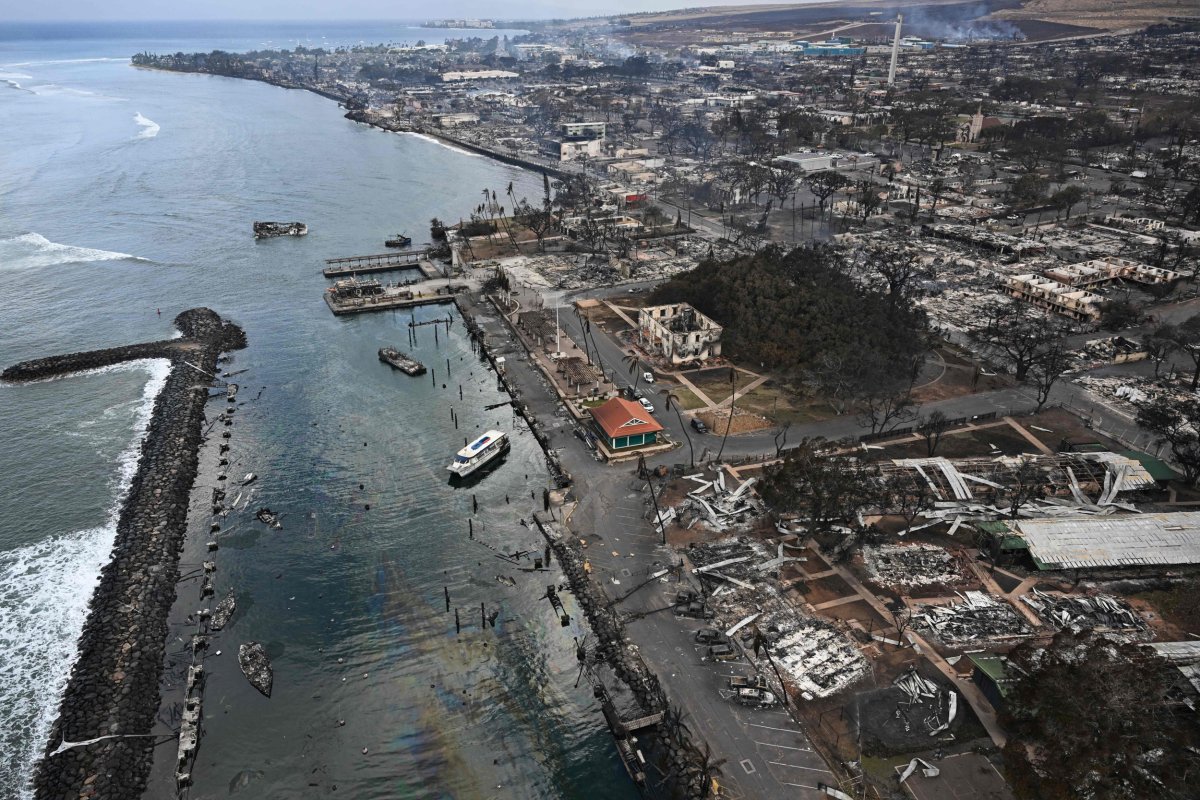Eight months after wildfires in Hawaii tore through Lahaina, Maui, about 3,100 people remain in temporary accommodations, still grappling with the aftermath.
In the wake of the fires last August, which left thousands homeless, efforts to transition displaced residents from hotels to permanent housing continue, Hawaii Governor Josh Green said to reporters in an address last Wednesday.
With a hope to vacate temporary hotel lodgings by July 1, the state faces a race against time to address Maui's housing shortage and fulfill promises of stability to those affected.
Green said that the state and federal governments have mobilized resources, securing contracts for 1,300 housing units and has initiated the construction of modular homes to facilitate the transition from temporary hotel accommodations to more permanent residences.

The initiative is part of a broader strategy to mitigate Maui's acute housing crisis, which was worsened by the fires.
Green previously hinted at the possibility of imposing emergency orders to convert vacation rentals into temporary housing for displaced Lahaina residents. However, he said during the address last week that the necessity for those measures has been circumvented through successful negotiations and contracts, reducing the number of families in hotels to less than 1,300.
But the real challenge some Hawaiian families are facing extends beyond just getting them in new housing—it's the location.
The governor noted that some displaced residents have shown reluctance to accept offered accommodations, saying that "a lot of people have been offered an apartment/housing, and have rejected it because it is too far away from West Maui, or it didn't suit their family circumstance."
Addressing those concerns, Green implemented a system providing residents with four opportunities to choose and accept housing, along with avenues for two appeals, aiming to balance the need for rehousing specific to family situations.
"There are some circumstances where people have rejected the offer three, four, five, even six times to go into housing. That's a challenge," he said.
"Many of these units, they simply have to be occupied. We're trending toward full occupancy outside of the hotels by July 1."
Newsweek has reached out to the Green's office by email for comment on Tuesday.
Amid housing recovery efforts, the physical landscape of Lahaina continues to bear the scars of the fires, which resulted in the loss of thousands of properties and caused an estimated $6 billion in property damage, according to the Economic Research Organization at the University of Hawaii.
The wildfires, fueled by dry conditions and strong winds from passing Hurricane Dora, erupted in August, swiftly engulfing the historic town of Lahaina and surrounding areas.
The rapid spread of the flames left little time for many residents to evacuate, leading to tragic losses. Official reports confirmed that 97 people lost their lives, making it the deadliest U.S. wildfire since California's Camp Fire in 2018 when 85 were killed. The community of Lahaina, known for its picturesque landscapes and vibrant tourist economy, was transformed into a scene of devastation overnight.
Homes, businesses and landmarks were reduced to ashes, displacing thousands and severely impacting Maui's economy. The loss of residential and commercial properties exacerbated an already severe housing crisis, with a meaningful portion of available housing previously dedicated to vacation rentals for tourists.
In the immediate aftermath, nearly 8,000 residents found shelter in hotels, a temporary solution propped up by FEMA dollars. The recovery process had been further complicated by the need to rebuild Maui's infrastructure, including water, sewer and electricity services, to the affected lots, delaying the return of displaced residents to their communities.
The efforts of state and federal governments, along with local communities and volunteers, reflect Hawaii's push toward recovery. However, the long-term economic and social impacts of the fires are yet to be fully realized.
Uncommon Knowledge
Newsweek is committed to challenging conventional wisdom and finding connections in the search for common ground.
Newsweek is committed to challenging conventional wisdom and finding connections in the search for common ground.
About the writer
Aj Fabino is a Newsweek reporter based in Chicago. His focus is reporting on Economy & Finance. Aj joined Newsweek ... Read more
To read how Newsweek uses AI as a newsroom tool, Click here.






